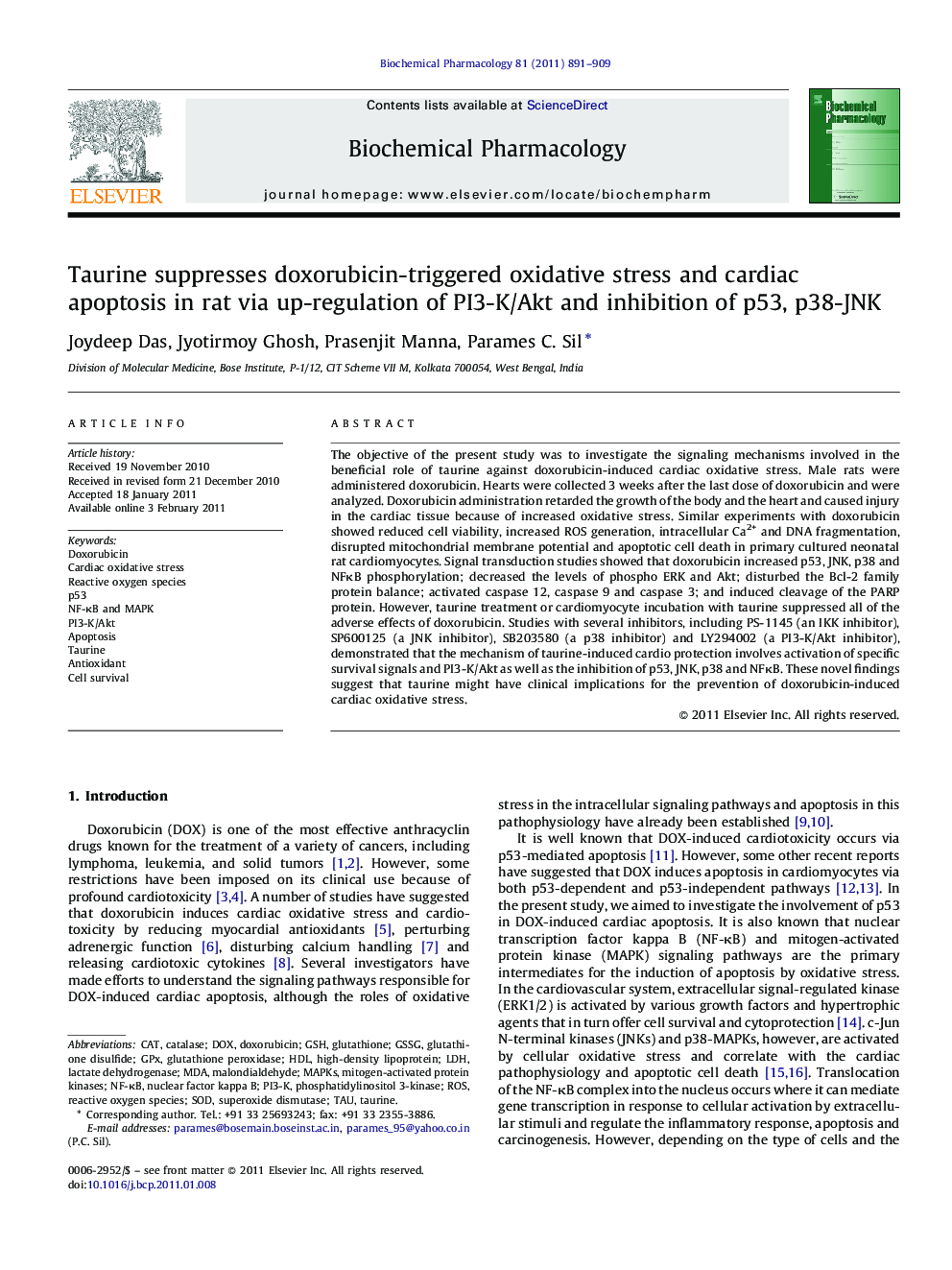| Article ID | Journal | Published Year | Pages | File Type |
|---|---|---|---|---|
| 2514110 | Biochemical Pharmacology | 2011 | 19 Pages |
The objective of the present study was to investigate the signaling mechanisms involved in the beneficial role of taurine against doxorubicin-induced cardiac oxidative stress. Male rats were administered doxorubicin. Hearts were collected 3 weeks after the last dose of doxorubicin and were analyzed. Doxorubicin administration retarded the growth of the body and the heart and caused injury in the cardiac tissue because of increased oxidative stress. Similar experiments with doxorubicin showed reduced cell viability, increased ROS generation, intracellular Ca2+ and DNA fragmentation, disrupted mitochondrial membrane potential and apoptotic cell death in primary cultured neonatal rat cardiomyocytes. Signal transduction studies showed that doxorubicin increased p53, JNK, p38 and NFκB phosphorylation; decreased the levels of phospho ERK and Akt; disturbed the Bcl-2 family protein balance; activated caspase 12, caspase 9 and caspase 3; and induced cleavage of the PARP protein. However, taurine treatment or cardiomyocyte incubation with taurine suppressed all of the adverse effects of doxorubicin. Studies with several inhibitors, including PS-1145 (an IKK inhibitor), SP600125 (a JNK inhibitor), SB203580 (a p38 inhibitor) and LY294002 (a PI3-K/Akt inhibitor), demonstrated that the mechanism of taurine-induced cardio protection involves activation of specific survival signals and PI3-K/Akt as well as the inhibition of p53, JNK, p38 and NFκB. These novel findings suggest that taurine might have clinical implications for the prevention of doxorubicin-induced cardiac oxidative stress.
Graphical abstractFigure optionsDownload full-size imageDownload as PowerPoint slide
